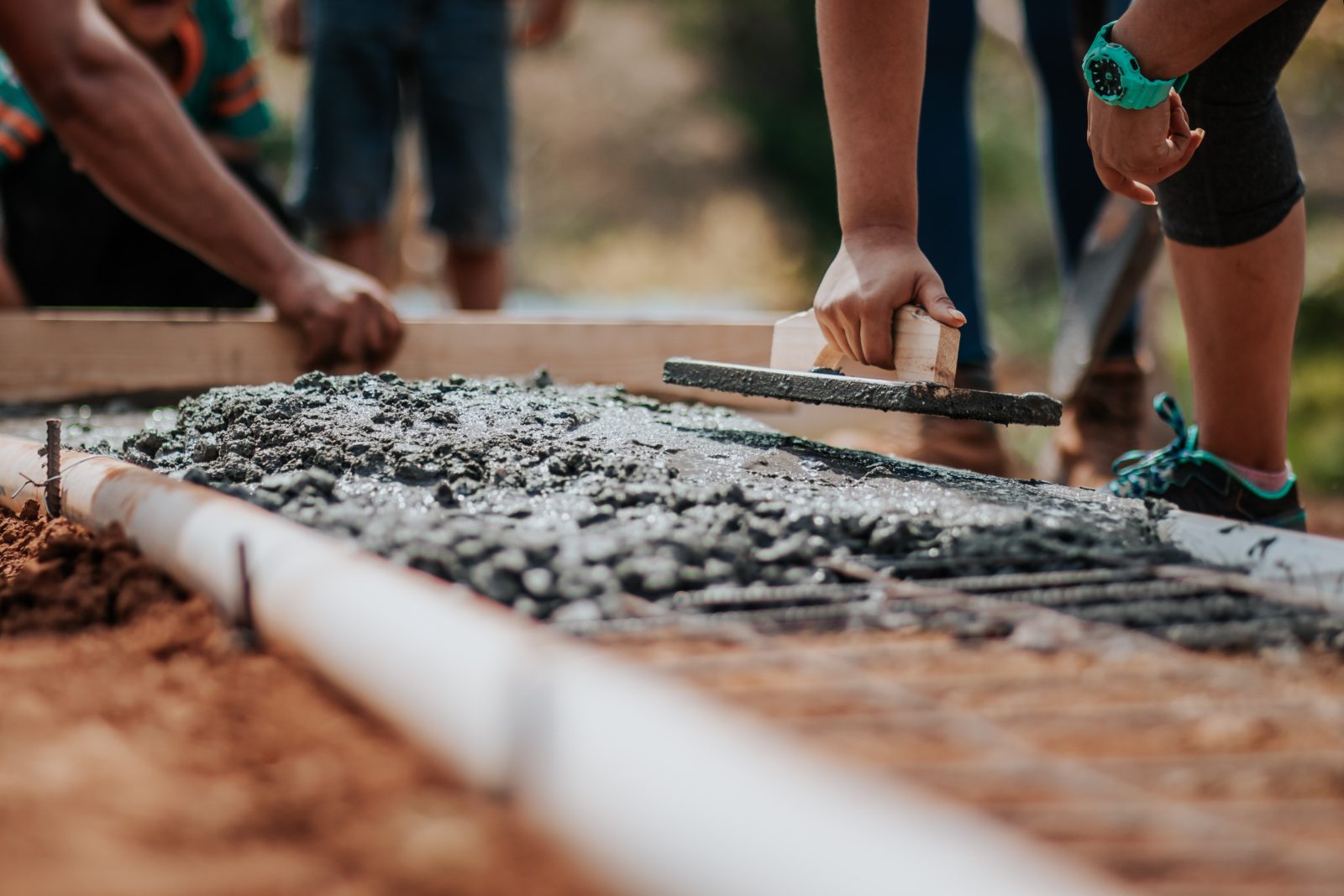Deciding and preparing to build a new home can be a frantic and stressful time for anyone, but especially difficult when you do not know what is actually stipulated within your building contract and what impacts it creates. Although a building contract must meet the criteria as set out in the Home Building Act 1989 (NSW), it is always best to seek legal advice and have the contract reviewed by a legal professional, whether a building contract or otherwise.
Signing the building contract
Before signing the building contract, seeking legal advice is always encouraged in order to assist you with:
a. Knowing exactly what you are signing;
b. Ensuring that the agreed payment amount and terms are correct;
c. Ensuring that the contract is applicable with state law;
d. Knowing your rights and responsibilities as the homeowner; and
e. Being aware of specific clauses within the building contract in order to avoid any future building issues which may arise.
When it comes to a building contract, the entirety of the contract is important. However, there are some clauses in particular, which are covered by the Home Building Act 1989 (NSW) (HBA), that should be highlighted and brought to the homeowner’s attention prior to signing off on the contract. These include:
a. Delays – what will happen if the builder does not meet the deadline? What are both of the party’s rights if the builder fails to complete the building work in the time stipulated due to delays?
b. Variations – what types of costs are involved and who is responsible for these costs?
c. Liquidated damages – liquidated damages in building contracts are damages that the builder must pay the homeowner if they fail to complete the building work by the deadline. What will the amount be for liquidated damages? If the parties cannot agree, will a default amount apply?
d. Completion date – what is the date for completion and is the date reasonable? Does the date allow the builder enough time to complete the building works? What about annual shut down periods or public holidays?
e. Termination – who can terminate the building contract and how can each party do so? What happens after termination?
Once a homeowner is aware of key clauses such as the above, and prior to signing the building contract, the homeowner and builder should have a final discussion on the agreed building specifics. Key questions a homeowner should consider include:
a. Does the builder have the capacity to take on the build? Consider the builder’s usual build time factor in any current or future climate changes;
b. If certain parts of the build are to take longer than usual, will the builder be happy to explain the reasons behind this?;
c. Discuss what will occur if delays in the delivery of any building material occur.
Delays throughout the building period
There are several questions a homeowner may ask themselves when it comes to building delays, including:
i. At what times during the build will I need to consider possible delays?
ii. What happens in the event of a delay?
iii. What are the rights of the homeowner and the builder?
iv. How is a delay rectified?
If a delay occurs during your contract building period, the first step is to refer back to the building contract. The building contract should provide a procedure for what the homeowner is entitled to do if the builder is in default, for example, terminating the building contract. If the building contract refers to a notice of breach, notice of termination or any other notice being required, the homeowner must provide this in writing to the builder.
In order to try and avoid delays, both the homeowner and builder should manage this by:
- Monitoring the progress of the building works and keeping track of each stage of the works against the stipulated time frames within the contract;
- Letting the homeowners know as soon as practicable if there are going to be any delays or disruptions in the building works; and
- If a delay in the works is inevitable, request an extension of time as soon as possible and explain how it will impact on the building works overall.
Variations to the building works
Making the decision to change something within the building contract, whether it be building materials, costs, the contract itself or wanting to make an addition to the works, can result in additional costs for the homeowners. If a homeowner wishes to make any changes, it should first be discussed with the builder so the homeowner can be made aware of whether or not the variation is achievable and what extra costs will be incurred.
If a homeowner or builder are not satisfied with the discussion regarding variations or even what the contract stipulates, one should seek legal advice. A legal professional will be able to assist with the following questions:
i. Can a homeowner or builder make a variation to the contract?
ii. Can either party change their mind about something in the building works?
iii. What if a homeowner wants to make an addition rather than a variation?
iv. What must a party do to vary the contract?
It should be kept in mind that a builder or even a tradesperson engaged in building works may need to vary the building contract due to a council requirement or unforeseen circumstances. However, if the reason for a variation is because of the builder’s or tradesperson’s fault, it is likely that the homeowner should not have to pay for any extra work in order to rectify the issue, pursuant to the statutory warranties between a homeowner and builder which are set out in the HBA.
Importantly, the decision in Paraiso v CBS Build Pty Ltd [2019] NSWCATAP 211 proposes that any variations to be made are to be in writing, attached to the building contract and signed by both of the parties.
Defects to the building works
When you notice a defect within the building works, it is always best practice to refer to the building contract to see how to manage any defects. By doing so, it can avoid conflict escalating between the homeowner and builder. It is always encouraged that attempts to resolve the issues should occur prior to commencing legal proceedings. However, if the matter is unable to be resolved, the HBA provides a 6-year period to commence proceedings for major defects in residential building work or 2 years in any other case.
Where a dispute involves major defects, a Court or Tribunal’s preferred outcome under section 48MA of the HBA is that the defective work within proceedings be rectified. However, if the dispute turns into a building claim, a Court or Tribunal has the power to make a money order as it considers appropriate, pursuant to section 48O of the HBA.
If a money order has been made, under section 48V of the HBA, there is a requirement that the secretary be notified in writing of the money to be paid in relation to the building claim. If the holder of a licence who is to pay the money order fails to notify the secretary, a maximum penalty of $2,200.00 (20 penalty units) will apply for individuals and $4,400.00 (40 penalty units) for corporations.
NSW Fair Trading offers a free complaints service to help resolve building disputes in particular for building defects. This applies to both residential and commercial buildings. NSW Fair Trading may engage a building inspector to attend the building site and make a decision to either:
a. Issue a rectification order if there are parts of the building works that the builder needs to fix; or
b. Make the conclusion that the builder is not responsible for the alleged defects.
In the case of The Owners – Strata Plan No 76674 v Di Blasio Constructions Pty Ltd [2014] NSWSC 1067, the issue of defective works was in dispute and the Court found that where defects are found during the building works, the homeowners have an obligation to allow the original builder or contractor the opportunity to rectify these defects.
It should be noted that a builder or contractor can lose their right to rectification if the homeowner can successfully prove that the homeowner acted reasonably in their conduct, and they have lost confidence in their builder and their willingness and ability to complete the works.
Ultimately, homeowners should ensure that discussions are had with their builder to allow them the opportunity to rectify any defective building works if any arise. If the builder fails to respond or provides an inadequate response, this may result in their loss of right to rectify the defective building works.
How We Can Help
We understand the huge investment involved in building a property and how important it is for all building works to run smoothly and be completed correctly. If you come to find yourself in a building dispute and are not sure what to do, you should seek legal advice to help you resolve the dispute.
Want to know more about how to deal with a building dispute in NSW? Contact us today on (02) 9391 3000.
Article prepared by: Sarah Cappello, Partner, Joey Tass, Senior Associate, Margaret Gotsopoulos, Graduate and Simone Cacopardo, Graduate.






































































